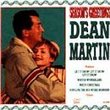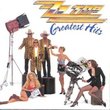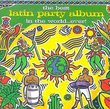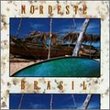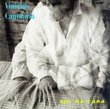| All Artists: Richard [Classical] Wagner, Robert Hager, ORF Vienna Radio Symphony Orchestra, Anton Dermota, Christiane Sorell, Heinz Imdahl, Hilde Zadek, Kurt Equiluz, Ludwig Welter, Willy Friedrich Title: Wagner: Das Liebesverbot Members Wishing: 0 Total Copies: 0 Label: Opera D'oro Original Release Date: 1/1/2006 Re-Release Date: 5/9/2006 Genre: Classical Style: Opera & Classical Vocal Number of Discs: 2 SwapaCD Credits: 2 UPC: 723721215057 |
Search - Richard [Classical] Wagner, Robert Hager, ORF Vienna Radio Symphony Orchestra :: Wagner: Das Liebesverbot
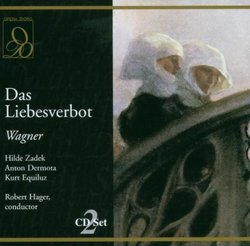 | Richard [Classical] Wagner, Robert Hager, ORF Vienna Radio Symphony Orchestra Wagner: Das Liebesverbot Genre: Classical
Wagner took Shakespeare?s play Measure for Measure as a framework for the plot of his second opera. Despite uneven inspiration and uncertain focus, there are many memorable scenes in the opera and for the first time Wagner... more » |
Larger Image |
CD DetailsSynopsis
Album Description Wagner took Shakespeare?s play Measure for Measure as a framework for the plot of his second opera. Despite uneven inspiration and uncertain focus, there are many memorable scenes in the opera and for the first time Wagner employs the leitmotif technique for which he would later be so famous. The premiere at Magdeburg on March 29, 1836 was a disaster, with most of the singers not knowing their parts thoroughly. A planned second performance, for which only three people showed up, was cancelled when a fistfight broke out between some of the cast backstage. Wagner later called Das Liebesverbot a "youthful indiscretion" and presented the score to his patron King Ludwig II of Bavaria with an apologetic poem. Similarly Requested CDs
|
CD ReviewsWagner's musical measures for Measure for Measure L. E. Cantrell | Vancouver, British Columbia Canada | 10/21/2006 (4 out of 5 stars) "SOURCE: Live performance from Vienna broadcast by Austrian Radio in 1962.
SOUND: Fairly decent live broadcast sound and certainly better than many live operatic recordings of its vintage. On the whole, the sound is perfectly acceptable if heard with a little good will. CAST: Friedrich, German viceroy of Palermo, a priggish tyrant who has put aside his wife - Heinz Imdahl; Isabella, a novice in a convent, sister to Claudio and the object of Friedrich's unwelcome advances - Hilde Zadek; Claudio, a foolish young man in a jam - Anton Dermota; Mariana, Friedrich's wife and now a nun without much in the way of true vocation - Christianne Sorell; Brighella, Captain of the Watch - Ludwig Welter; Antonio, a prominent citizen of Palermo - Willy Friedrich; Luzio, a crony of Claudio's, a "fantastic" - Kurt Equiluz; Dorella - a young woman of Palermo - Unidentified. Conductor: Robert Hager with the Osterreichischen Rundfunks Chor und Orchester. FORMAT: Disk 1 - Act I, tracks 1-13, 63:06. Disk 2 - Act I (continued), tracks 1-4; Act II, tracks 5-14, 60:45. TEXT: I have never come across a score for this opera but this version that runs just over two hours must be massively cut, since the competing version with Sawallisch and the Bavarian State Opera spreads over three disks. DOCUMENTATION: No libretto. Brief history of the opera and short summary of its plot. Track list that identifies singers and provides timings. Sometime in 1603 or 1604, at about the same time that he wrote "Othello," Shakespeare wrote "Measure for Measure." It was performed before King James at Windsor during the Christmas season in 1604. In the First Folio, "Measure for Measure" was placed among the comedies, following "The Merry Wives of Windsor" and preceding "The Comedy of Errors." It is a very, very dark comedy between two such bright pieces, and critics have long lumped it in with the Bard's "problem plays." It is, in fact, just the sort of gloomy thing that would appeal to a composer who could devote fifteen hours of music to the crumbling of a god's dreams. The dramatic heart of Shakespeare's play is the head-on collision of two strong, not particularly admirable characters, neither possessing even so much as a speck of comedy in their souls, Angelo and Isabella. Wagner was plainly drawn to such collisions, since he returned to the form with the conflict of Tristan and Isolde in the first act of their opera and yet again with Wotan and Bruennhilde. The changes Wagner made to Shakespeare's play for "Das Liebesverbot" ("The Love Ban") are of interest in themselves. He moved the action from Vienna to Sicily, of all places. He retained the aristocratic characters, save for Duke Vincentio who starts up the action of the play and ties everything into a nice bundle at the end. He created a gap between the hypocritical, Germanic Friedrich (Shakespeare's Angelo), the icy Isabella (a true sister to Turandot) and the warm, joyous Italians. He swept away Shakespeare's lowlife panderers, bawds and jailbirds who are genuinely funny and replaced them with conventional Italianate choral merrymakers. Wagner's Palermo is generally a happier, if less interesting place than Shakespeare's Vienna. "Das Liebesverbot" followed "Die Feen" to become Wagner's second produced opera. It premiered at Magdeburg on March 29, 1836. It was a flat, unredeemed and utter flop. The experience was so traumatic that Wagner simply walked away from it. In later years he referred to it as a youthful indiscretion. It never became part of anybody's standard operatic repertory and, so far as I know, has never even set foot inside the hallowed precincts of Bayreuth. This is all very unfortunate because "Das Liebesverbot" is actually a pretty good opera. If it had been written by almost any other composer, it would have been recognized as a minor masterpiece and taken up its proper station at the edge of the standard repertory beside Nicolai's "Merry Wives of Windsor," Flotow's "Martha" and Auber's "Fra Diavolo." (The same thing, by the way, scuppered the career of Verdi's very pleasing little comedy, "Un giorno di regno," another youthful failure abandoned by its creator.) Wagner's first three operas are his apprentice pieces. He had not yet formed a style of his own and he was experimenting with the styles of others. In "Die Feen" it is clear that he had heard and admired Weber. With his third opera, he was aiming for a production at the Paris Opera, so "Rienzi" owed much to that recognized master of making a profit from French taste, Meyerbeer. With "Das Liebesverbot" Wagner, who particularly loved Rossini, took some steps along the path favored by the Italian masters. There are numerous bouncy passages which might almost have been written by Bellini that quite unexpectedly turn into stately passages that are pure Wagner. The shifts can be startling. The performance seems fine to me. 1962 is a little late for Dermota. The 52 year-old singer had lost some vocal sheen. Nonetheless, he was a great performer all throughout his career (which included a triumphant Tamino at the Vienna State Opera at the age of 70) and he is fine--if somewhat grandfatherly--as the feckless Claudio. Hilde Zadek and Heinz Imdahl fight the wars between Isabella and Friedrich in what strikes me as a perfectly satisfactory manner. The rest of the cast is good. This is certainly not a familiar opera for me but the conducting seems to be lively and appropriate. The Austrian Radio Orchestra and Chorus are both OK. So far as it goes, this is an admirable performance of an unfamiliar but interesting opera. That very unfamiliarity, however, makes the absence of a libretto uncomfortably acute. That missing libretto and the apparently substantial cuts in the performing text lead me to deduct one star. Four stars--but give it a try anyway." |

 Track Listings (13) - Disc #1
Track Listings (13) - Disc #1